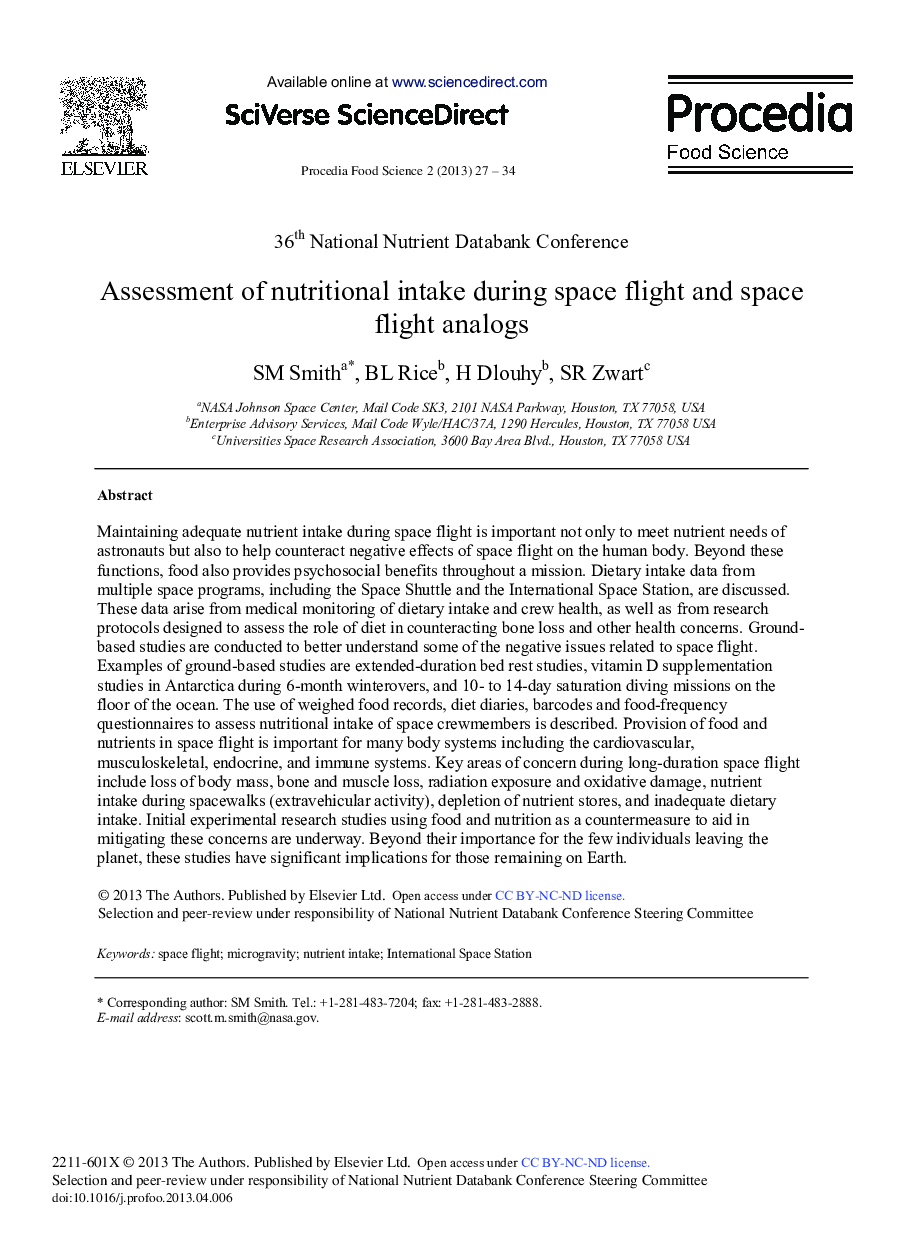| Article ID | Journal | Published Year | Pages | File Type |
|---|---|---|---|---|
| 1265485 | Procedia Food Science | 2013 | 8 Pages |
Maintaining adequate nutrient intake during space flight is important not only to meet nutrient needs of astronauts but also to help counteract negative effects of space flight on the human body. Beyond these functions, food also provides psychosocial benefits throughout a mission. Dietary intake data from multiple space programs, including the Space Shuttle and the International Space Station, are discussed. These data arise from medical monitoring of dietary intake and crew health, as well as from research protocols designed to assess the role of diet in counteracting bone loss and other health concerns. Ground- based studies are conducted to better understand some of the negative issues related to space flight. Examples of ground-based studies are extended-duration bed rest studies, vitamin D supplementation studies in Antarctica during 6-month winterovers, and 10- to 14-day saturation diving missions on the floor of the ocean. The use of weighed food records, diet diaries, barcodes and food-frequency questionnaires to assess nutritional intake of space crewmembers is described. Provision of food and nutrients in space flight is important for many body systems including the cardiovascular, musculoskeletal, endocrine, and immune systems. Key areas of concern during long-duration space flight include loss of body mass, bone and muscle loss, radiation exposure and oxidative damage, nutrient intake during spacewalks (extravehicular activity), depletion of nutrient stores, and inadequate dietary intake. Initial experimental research studies using food and nutrition as a countermeasure to aid in mitigating these concerns are underway. Beyond their importance for the few individuals leaving the planet, these studies have significant implications for those remaining on Earth.
